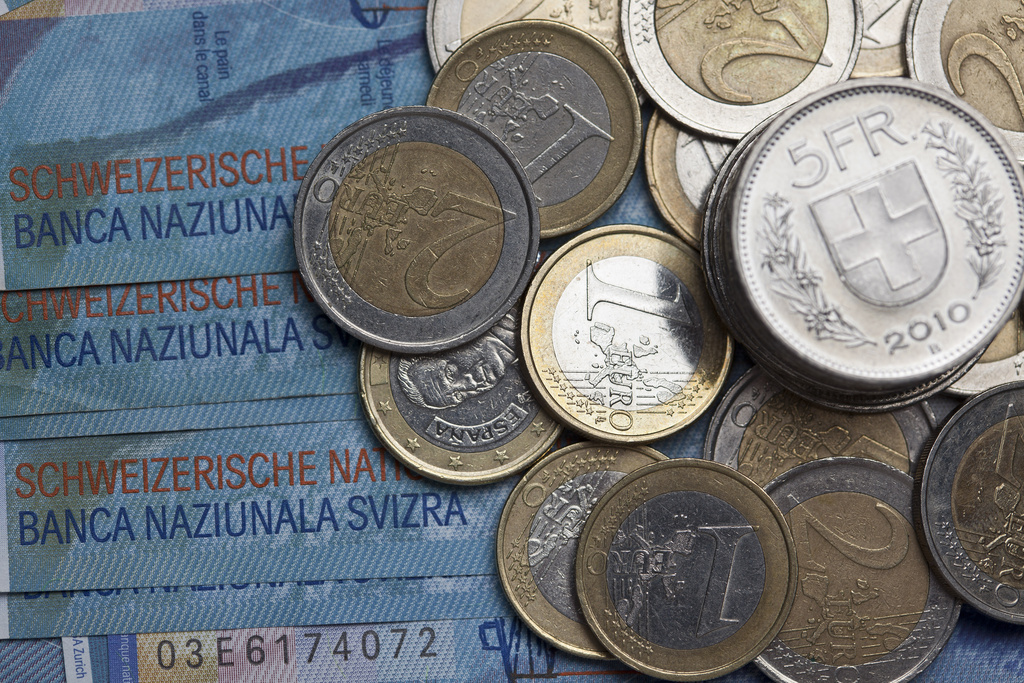

A boy plays in front of a newly built house in Kolontar, near Budapest
AFP
The plight of eastern European homeowners struggling to pay back Swiss franc denominated mortgage loans has prompted governments to introduce emergency measures.
The craze of accumulating debt in francs has also left banks in many countries exposed to defaults and even affected communities in Austria that unwisely speculated in currency exchange rates before the financial crisis.
Swiss franc mortgages were commonplace in countries such as Hungary, Poland, the Czech Republic, Romania and Croatia before the 2008 economic crash. Household loans were also popular in the currency thanks mainly to its stability and low interest rates in Switzerland.
Many people were not aware that they were taking much of a gamble, but the ploy backfired as the value of the franc escalated against their own currencies. Homeowners suddenly found their repayments skyrocketing and in some cases had to watch their loans outstrip the value of their houses.
By the time the economic crisis hit, some two thirds of all mortgage loans in Hungary were denominated in Swiss francs. In Poland, more than half of mortgages were in francs, while other eastern European and Baltic countries also had high rates.
Moral hazard
In an effort to stem the rise of home repossessions, the newly elected Hungarian government banned banks from foreclosing most loans in the first quarter of this year.
The franc bought 160 Hungarian forints in the summer of 2008, but has strengthened so much that it can command 230 forints at the moment.
To help stave off social meltdown, the Hungarian authorities have set an artificial exchange rate of 180 to allow homeowners to convert loans into forints without going bust. The scheme comes with a sting in the tail; those taking advantage of the deal must make up the difference from 2015.
“This is a better option than banning banks from foreclosing loans,” György Barcza, chief economist of Hungary’s K&H Bank told swissinfo.ch. “This created a moral hazard as people simply stopped their repayments, believing that the government would bail them out.”
“Allowing people to exchange their francs at an artificial level is less damaging to banks, but it simply delays the debt problems for a few years.”
Out of work
Barcza is hoping that the Hungarian economy will pick up before then and eat into the current unemployment rate of 11 per cent.
“People are willing to repay, but if someone becomes unemployed and loses their income they would have no other option,” said Barcza. “Things are becoming a bit more stable compared to a year ago, but we could yet experience delayed problems.”
Hungary cannot reduce its interest rates much below the current six per cent because foreign investors hold most of the country’s currency. A drop in interest rates would cause them to sell, almost certainly resulting in the forint falling even further in value.
Many countries have either banned or restricted the issuance of loans in foreign currencies. The mass conversion of francs into local currencies or euros has ironically helped stimulate the inexorable rise of the Swiss currency.
“People have to pay in Swiss francs if they want to exit their short positions on the currency,” explained currency expert Ursina Kubli of Bank Sarasin. “This increases the demand from overseas customers for Swiss francs and adds further upside pressures to the currency.”
Towns in debt
The so-called carry trade has been mainly facilitated by foreign banks in Switzerland, Germany, Italy, Nordic countries – and most notably Austria thanks to its proximity and historical links with Hungary.
But it is not just Austrian banks that have been exposed by the rise in the value of the franc. Even local communities were fooled into believing they could boost their finances by trading in francs at a time of low interest rates and high stability.
The town of Payerbach could be left with a bill of up to €50 million (SFr58.6 million) unless it manages to unwind its positions in the Swiss currency, according to the Tages-Anzeiger newspaper.
“It would have been better for the authorities to have gambled the money in a casino,” a local councilor told the journal. “We would then at least have known about the risks.”
One local lawyer is currently negotiating with banks on behalf of Payerbach – along with 13 other communities.
Some 64% of mortgages and 54% of all corporate loans in Hungary are denominated in foreign currencies – most of them in Swiss francs.
Some 100,000 homeowners in Hungary are currently overdue on mortgage repayments.
Some 700,000 homeowners have taken out their debt in Swiss francs in Poland.
It is estimated that around 200,000 Polish mortgage debt holders are in negative equity – the value of their property is less than that of their debt.
Many other countries, including Romania, the Czech Republic, Bulgaria, Serbia and Croatia also have high rates of mortgage loans taken out in foreign currencies, particularly francs.
Three years ago the Swiss National bank estimated that two thirds of Austrian mortgages were taken out in Swiss francs.
At the time, some SFr350 billion in Swiss franc loans were outstanding in Europe.










